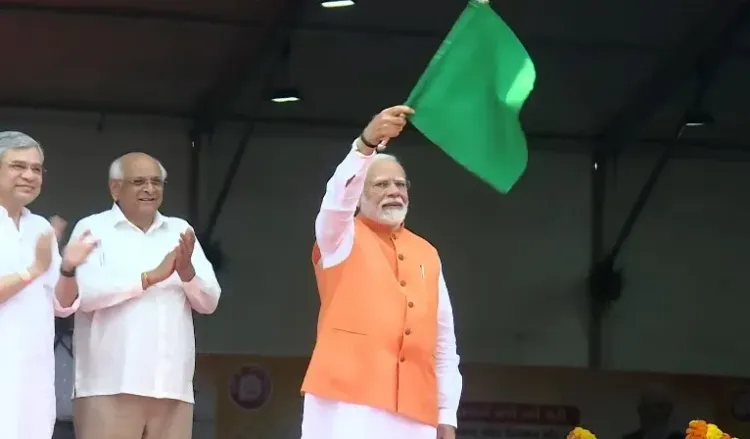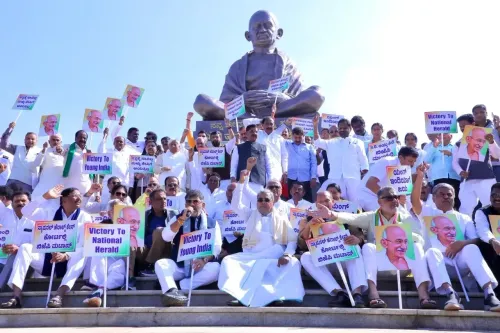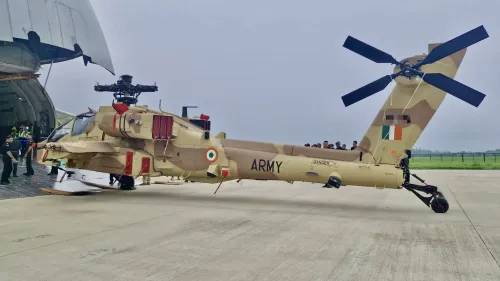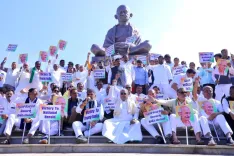Did PM Modi Inaugurate a Loco Manufacturing Railway Workshop and Flag Off the First 'Made in Dahod' Electric Locomotive?

Synopsis
Key Takeaways
- Dahod workshop inaugurated by PM Modi.
- Investment of Rs 20,000 crore for the facility.
- Aim to produce 1,200 electric locomotives over the next decade.
- Locomotives will feature driver comfort enhancements.
- Significant boost to freight capacity on Indian Railways.
Dahod, May 26 (NationPress) On Monday, Prime Minister Narendra Modi officially inaugurated the Loco Manufacturing Shop-Rolling Stock Workshop in Dahod, Gujarat, and launched the inaugural electric locomotive produced at this facility, marking a pivotal moment for Indian Railways infrastructure.
While dedicating the Dahod locomotive manufacturing unit to the nation, PM Modi emphasized the workshop's significance, which has been established with a substantial investment of Rs 20,000 crore.
The project's foundation stone was laid in 2022, and in just three years, this modern production center has become operational.
This workshop is designed with an annual production capability of 120 electric locomotives, which can be increased to 150 units based on future demands.
Through the Public-Private Partnership (PPP) model, Indian Railways plans to produce 1,200 electric locomotives at this facility over the next ten years.
These powerful 9,000 HP locomotives, in line with PM Modi's vision of 'Make in India' and 'Atmanirbhar Bharat', will proudly display the label 'Manufactured in Dahod'.
These high-capacity engines can haul 4,600 tonnes of cargo and are intended for both domestic and export use.
For the first time, these locomotives will feature air conditioning and toilet facilities for drivers, significantly enhancing crew comfort.
Moreover, an advanced safety cover system has been integrated to prevent accidents and enhance safety.
Currently, four locomotives are in production at the Dahod facility, all of which will carry the 'Manufactured in Dahod' label with pride.
These locomotives are expected to primarily operate on the Western Dedicated Freight Corridor (DFC) and graded railway sections.
Engineered to pull container freight trains in double-stack configurations weighing up to 4,500 tonnes at 75 km/h on a one in 200 gradient, they aim to increase the average speed of such trains from the current 20-25 km/h to approximately 50-60 km/h.
This enhancement in operational capabilities is anticipated to significantly boost freight throughput and improve line capacity throughout Indian Railways.










